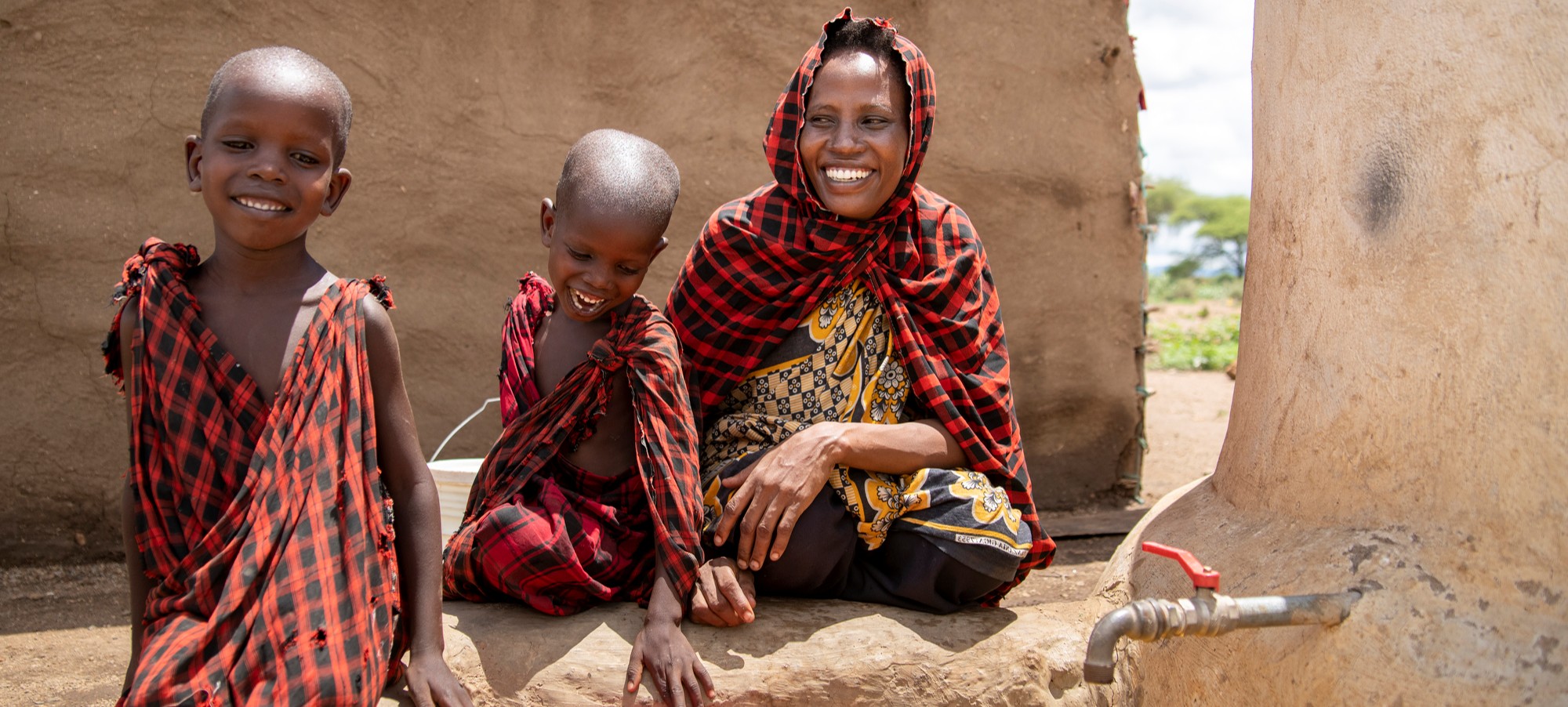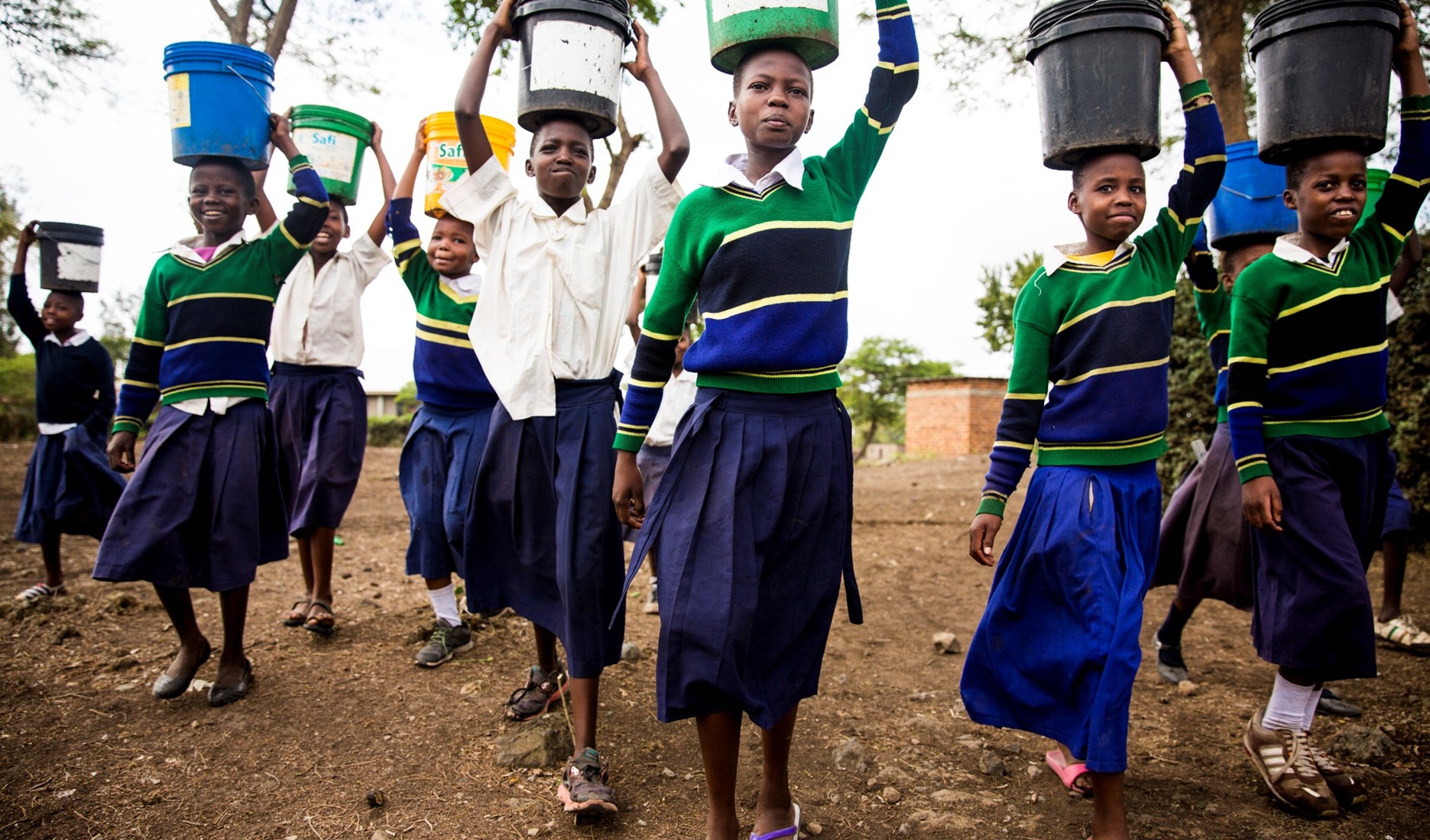
About the Together Women Rise Grants Program
The Together Women Rise Grants Program has two key components that support our overall mission to achieve global gender equality. Featured Grants are largely focused on delivering direct services by funding grassroots organizations that empower and support women and girls in low-income and marginalized communities in the Global South. Our Transformation Partnerships are designed to invest in areas where we can make the biggest impact on achieving global gender equality by addressing the root causes of gender inequality.
Through our Featured Grants Program, we highlight a different organization/project each month, providing a variety of learning materials on the issue and how the grant will be used. Through the Featured Grants program, we support capacity building, new programs, or expansion of existing programs. The following is information on the grant we are featuring for March 2025.
The Global Issue
The impact of water access and water scarcity on women
| When women are freed from the walk for water, they can manifest their considerable capacity as agents of social transformation. They turn their energies to other enterprises that result in thriving for the whole family. Food crops flourish and nourish, trees become forests, and communities begin to thrive. Children no longer sacrifice their education to the search for water. – Save the Rain |
Worldwide, one in three children, and one in four people total, live in water scarcity. And the numbers are increasing due to climate change, economic instability, and population growth. Sub-Saharan Africa is particularly vulnerable as it is affected by all three contributing factors.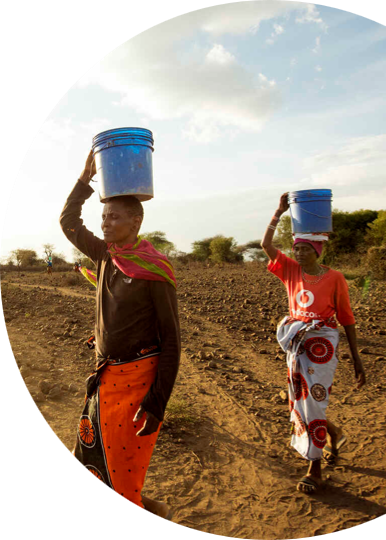
According to the U.S. Mission to the United Nations, nearly half of the world’s population lacks a hygienic toilet at home, and one third of people are unable to wash their hands with soap and water at home. This burden is disproportionately felt by women and children, whose educational and economic opportunities suffer as a result, creating a cycle of poverty.
Water scarcity in Sub-Saharan Africa takes a great toll on women and girls because they are often the ones responsible for collecting it. They can spend a significant amount of time traveling long distances to collect water, and these walks are often risky. Many women report that they experience physical or sexual violence during their search for water. The girls involved in this work are spending less time at school, forfeiting their education to meet their families’ need for water.
Water scarcity is only part of the problem. Even if water is available, water quality remains a critical issue. Many children in the Global South do not have access to safe drinking water. In Northern Tanzania, where our March grantee works, communities are affected by the devastating impact of high levels of fluoride occurring naturally in the groundwater, which can cause serious health problems.
| In the United States, more than 2 million people lack access to clean drinking water in their homes, and nearly 30 million live in areas of the US with limited water supplies. |
About Our Grantee
Together Women Rise is funding a $50,000 Featured Grant to Save the Rain. This is a project grant that will fund the Women’s Water Initiative.
SAVE THE RAIN
Walking for water enslaves women to scarcity. Save the Rain subverts this dynamic, making water the element that empowers them.
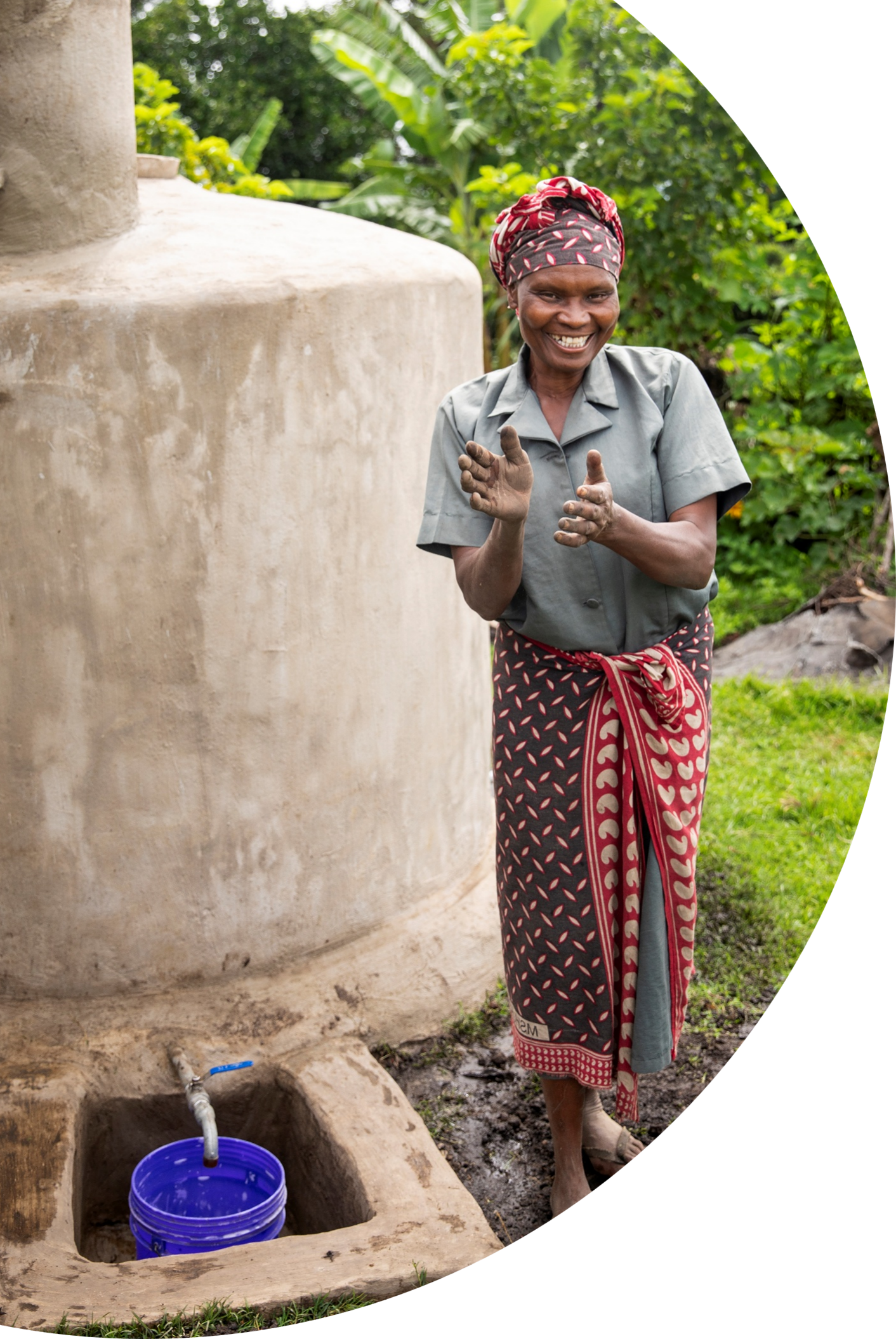 Save the Rain began in 2005 with one tank, one family, and one idea: harvesting rainwater. That first project was conceived of by Joseph Nyarianga, a farmer and mason in the Njeku community of northern Tanzania. He wanted to build a small rainwater tank at his children’s school. His family suffered from a lack of water, and his wife and daughter knew the threat of violence awaiting them when they searched for it. He thought building a rainwater tank could help his family and community. Save the Rain, a newly founded American nonprofit organization, agreed to help. Joseph is now the director of Save the Rain in Tanzania and his daughter, Violeth, works beside him.
Save the Rain began in 2005 with one tank, one family, and one idea: harvesting rainwater. That first project was conceived of by Joseph Nyarianga, a farmer and mason in the Njeku community of northern Tanzania. He wanted to build a small rainwater tank at his children’s school. His family suffered from a lack of water, and his wife and daughter knew the threat of violence awaiting them when they searched for it. He thought building a rainwater tank could help his family and community. Save the Rain, a newly founded American nonprofit organization, agreed to help. Joseph is now the director of Save the Rain in Tanzania and his daughter, Violeth, works beside him.
Save the Rain transforms communities by constructing rainwater harvesting systems that provide clean water for homes and schools. Its sustainable practices empower women, improve health, enhance education, create economic opportunities, ensure food security, and cultivate a brighter future for all. Saving rain saves lives.
Since 2005, Save the Rain has built 6,500 rainwater harvesting systems. Instead of drilling wells, Save the Rain creates access to clean water for communities right at their doorsteps with no dependency on electricity or pumping. The systems are meticulously designed to prevent contamination and ensure safe, clean drinking water. Save the Rain has seen a 96% improvement in students’ general health once these rainwater systems are in use. When clean water is present at home, 94% of families commit to their daughter’s education.
LEARN MORE ABOUT SAVE THE RAIN.
Life Challenges of the Women & Girls Served
Save the Rain operates in northern Tanzania. Before receiving rainwater harvesting tanks of their own, the women who benefit from Save the Rain’s projects were walking an average of eight hours a day for water.
The women and girls of Tanzania face challenges that reflect broader national trends, while also being shaped by local factors.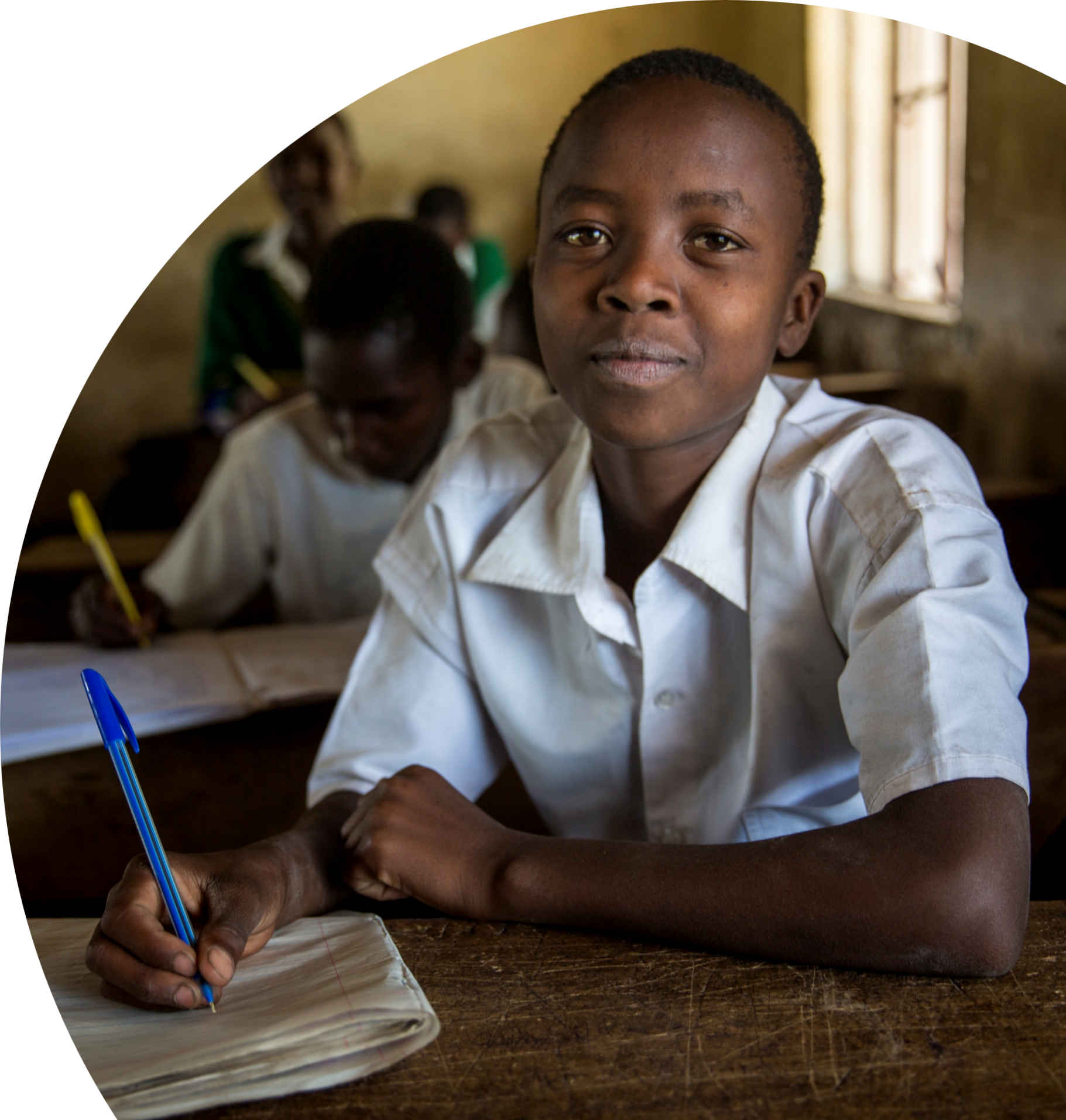
- Economic Inequality and Limited Opportunities: The area where Save the Rain works has suffered significant losses of life due to HIV/AIDS, leaving many widows to manage their families. The main source of income for families is sustenance farming, which women are largely responsible for, yet they have limited access to land ownership and control over resources. Formal employment opportunities are scarce, and the women who work for pay often find themselves in low-paying, informal sectors with little job security. Women also have less access to credit and financial services, limiting their ability to start a business.
- Gender-Based Violence: Women and girls often face domestic violence, including physical and emotional abuse by their husbands or male family members. This violence is rooted in deeply entrenched patriarchal norms, where women’s roles are viewed primarily as caregivers, and their voices are marginalized. Although female genital mutilation/cutting (FGM/C) is illegal in Tanzania, it is still practiced in some communities. This harmful cultural practice can have serious physical and psychological consequences for girls and women.
- Cultural and Patriarchal Norms: Women throughout Tanzania often have limited decision-making power within their households. Traditional gender roles dictate that men are the primary decision-makers, leaving women with little say in issues that affect their own lives and those of their children.
LEARN MORE ABOUT TANZANIA.
How the Grant Will be Used
Together Women Rise will fund the Women’s Water Initiative, a project to employ teams of 100 female builders to construct 100 residential rainwater harvesting systems and 100 residential greenhouses for 100 families.
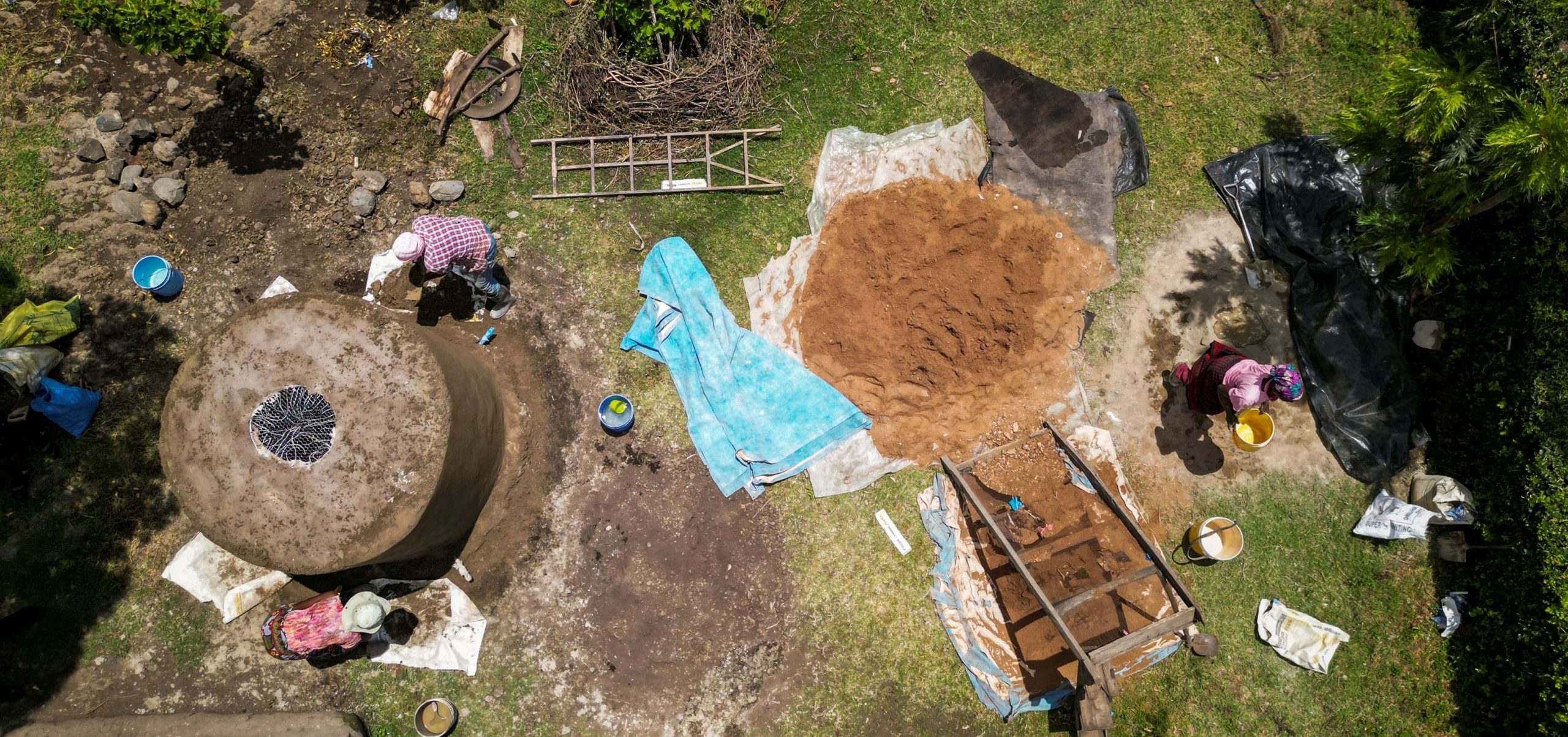
100 Rainwater Harvesting Systems:
Save the Rain continues to build rainwater harvesting systems at primary schools to ensure safe water for students, fostering a marked improvement in their health, attendance, and education. These tanks typically hold 150,000 liters of water, but Save the Rain also builds 3,500-liter residential rainwater harvesting systems for families, which will be the focus of this project. These systems mean that the women in these families never have to walk for water again. Tanks can harvest 300 gallons of water from just one inch of rain that falls on a 500-square-foot roof. A woman walking for water might carry 10 gallons, meaning that it would take her 30 trips to collect what one inch of rain could deliver to her home.
Each residential system can sustain a family of eight between rainy seasons. The 100 tanks funded by this project will sustain four different communities with readily available clean water and end the need to walk for water. With a lifespan of 200 years, the tanks are built to last for generations, and require no electricity, pumping, or western additives for filtration.
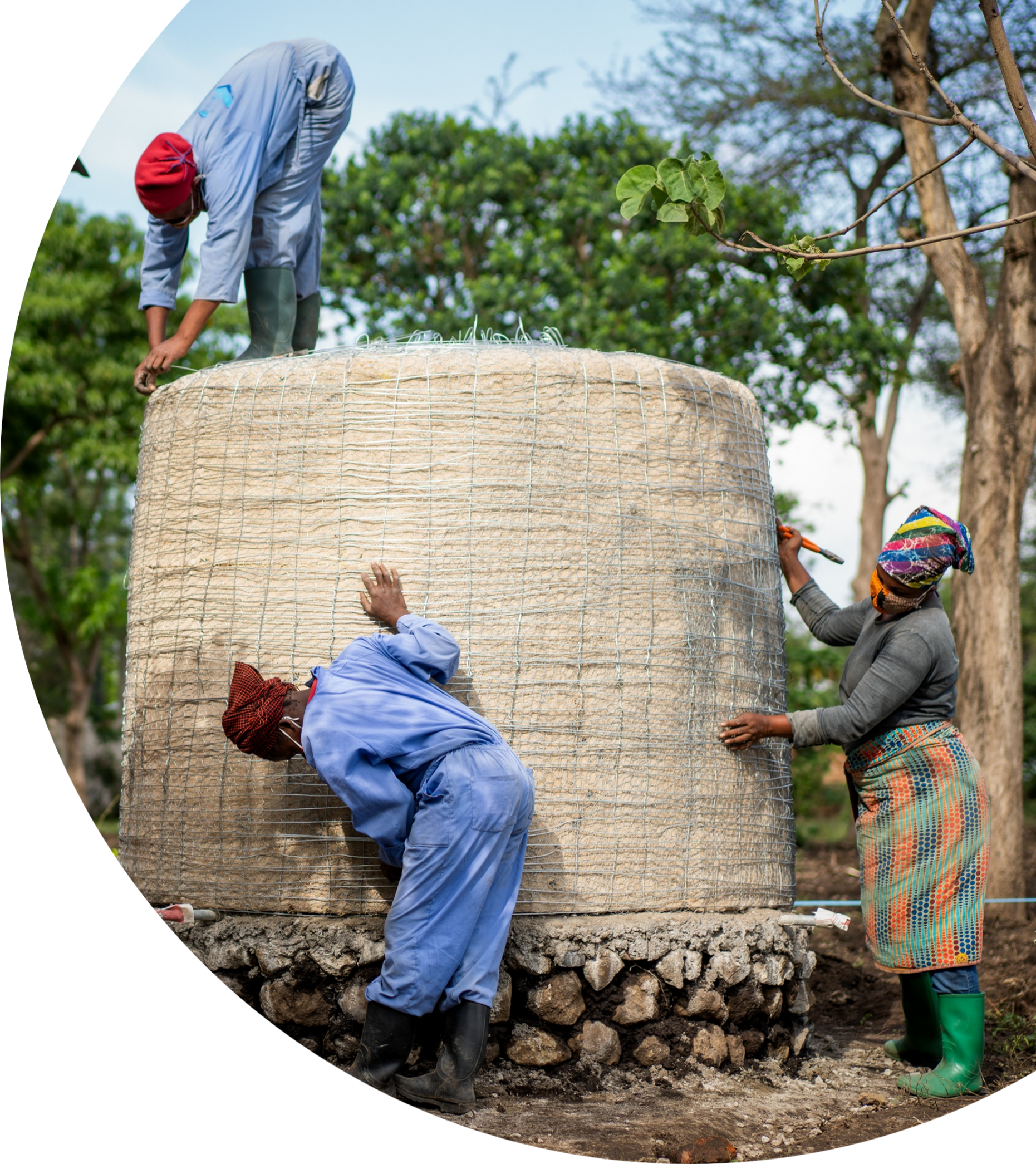 100 Women Builders:
100 Women Builders:
This project will also employ 100 women to build tanks and foster future work opportunities with Save the Rain to build for other communities. Each family is paired with four female builders. For each tank built, the teams train three women from the community to build alongside them, providing a new skill set and salaried work. Each domestic rainwater harvesting system takes six days to construct. Eliminating the need to walk for water costs only $500. This investment has a multigenerational impact, as clean water is shared with extended family and neighbors.
100 Greenhouses:
The residential greenhouses, made from local materials, are low-cost, effective, and sustainable, and they provide families with a consistent nutritious food supply. Save the Rain began implementing sustainable agriculture programs as part of every project nearly 15 years ago. It started with permaculture gardens at homes, schools and village centers, but following a locust infestation in East Africa, shifted first to large greenhouses and then to small, family-sized structures that protect nutritious leafy greens from insects, giving families abundant and consistent food crops along with their clean drinking water.
IMPACT – Direct: 3,588 women and girls; Indirect: 36,000 women and girls
Budget
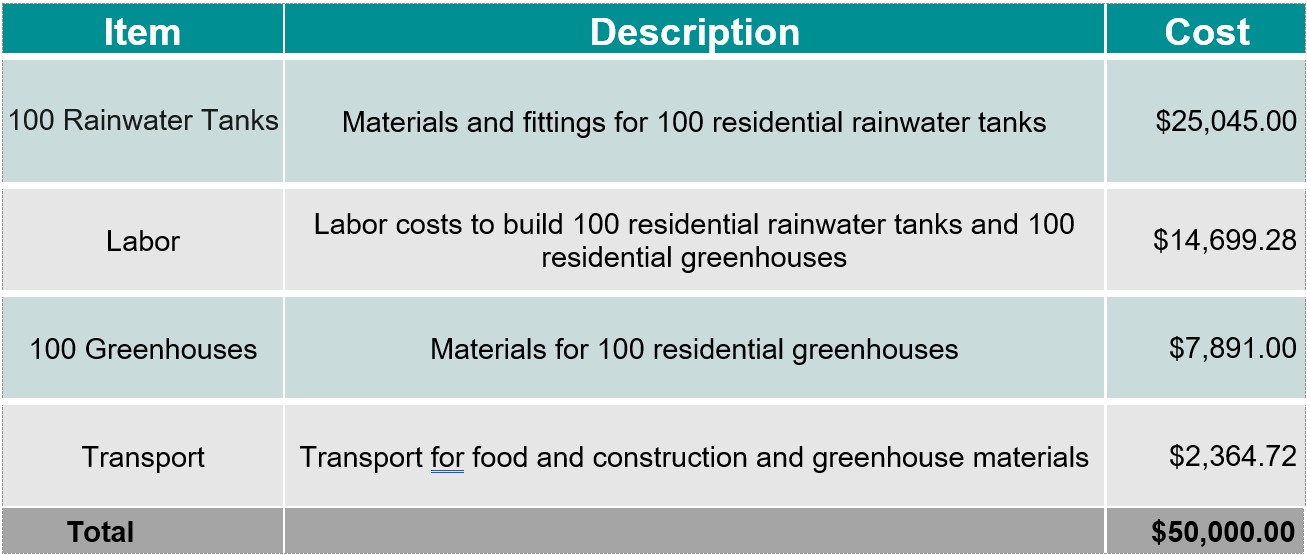
Why We Love This Project/Organization
This project looks simple but has huge ripple effects. Women and girls spend hours a day walking for water, which equals high risk of sexual assault. We love that this project is community-driven and community-led, with a commitment from Save the Rain for the long term. As women are trained to build rainwater collection systems, it increases their financial independence and their daughters can stay in school. The greenhouses also change the game nutritionally, providing access to healthy food.
Impact Story
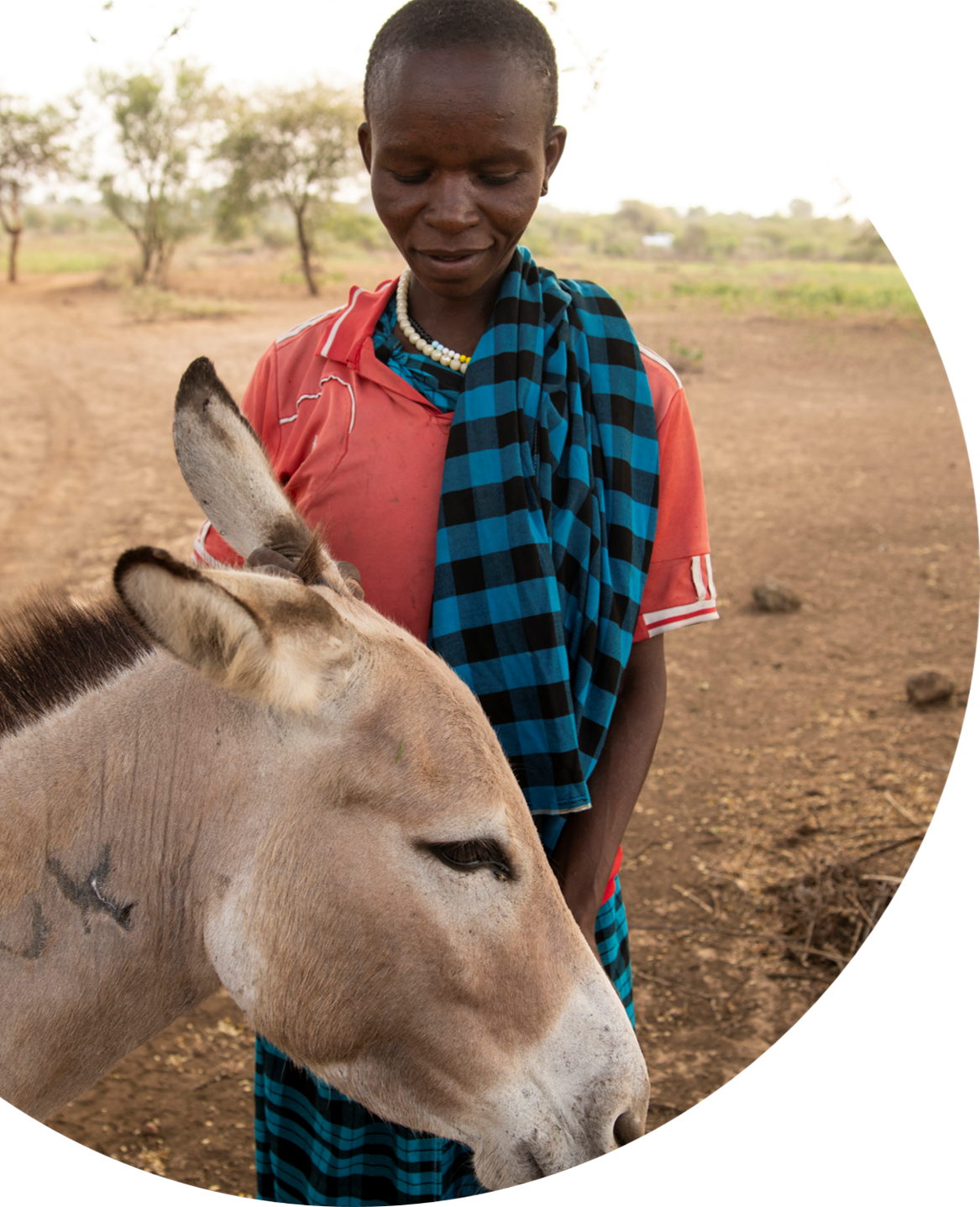 MEET NASINYARI
MEET NASINYARI
Water is life. In Nasinyari’s remote village in northern Tanzania, the quest for water robs women of their rest.
Before receiving rainwater harvesting tanks of their own, Nasinyari and the other women in her isolated community were all walking eight hours for water. If they went as a group, they would leave at 4:45 a.m. Going alone, they would wait for safety’s sake until the sun rose to start the journey. This is a look at what the work of collecting water – the work of women – was like for Nasinyari without access to a collection tank.
She tethers empty plastic drums to her three donkeys. The 200 liters they can carry only last a day and a half, so she has to make this trip four times a week.
Necessity forces women to make this journey, and it is devastatingly easy for predators to take advantage of this fact. Nasinyari and the donkeys keep a tense, brisk pace. She risks tripping over uneven ground as thorns snag at her clothes and the shadows hide danger. It’s not the hyenas she worries about. It’s the men.
As the sun climbs, Nasinyari has spent half the day in search of a water source before finding enough to carry home and even beginning the work of the day: caring for and feeding her children, washing clothes and doing the work needed to keep her family alive.
The women of Save the Rain have been building rainwater harvesting systems on homes like Nasinyari’s for nearly 20 years, delivering transformation through strength, love, and a solution that falls freely from the sky.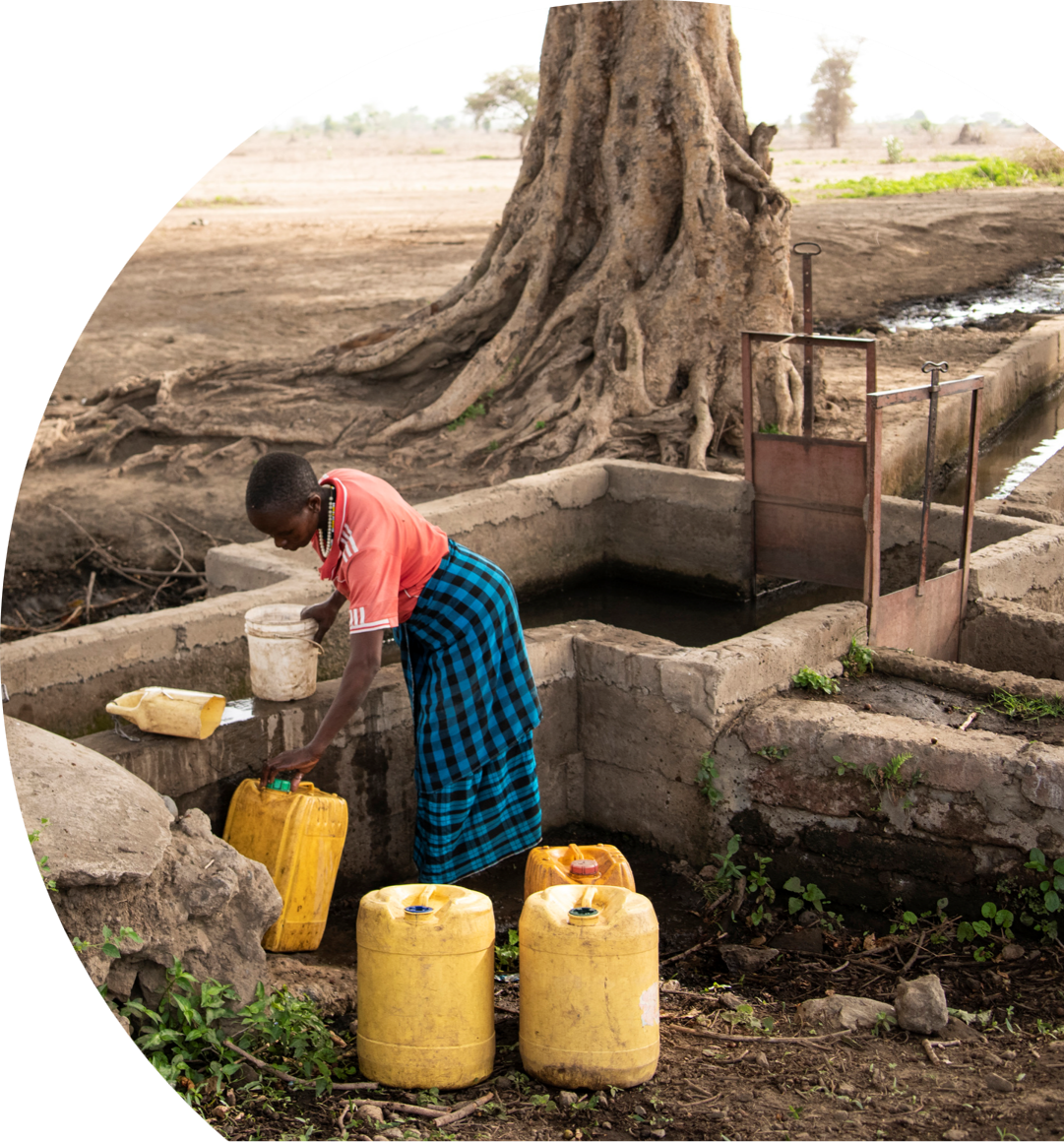
Bringing a rainwater harvesting system to her home means Nasinyari never has to walk for water again. Many hours each week have been reclaimed and she is no longer put in danger by making long treks. Her baby girl will never know this walk at all: she will grow up in the safety of being able to take water for granted. This transformation turns water from a source of all-consuming scarcity and hardship into one of security, sufficiency, and opportunity.
Save the Rain has built thousands of tanks. When the transformation multiplies and ripples out across tens of thousands of daughters, generational change happens.
Read more of Nasinyari’s story here.
Learn More
Shop! Watch! Read! Listen!
Proven Platter
Recipes
Source Materials
Save the Rain
US Mission to the United Nations
US Geological Survey
Glossary
FGM/C: female genital mutilation/cutting; all procedures that involve partial or total removal of the external female genitalia, or other injury to the female genital organs for non-medical reasons
The Global South: The Global South includes the countries that experience higher levels of poverty, income inequality, lower life expectancy, and harsh living conditions compared to the wealthier nations in the “Global North” – located mostly in North America and Europe. The Global South primarily includes many of the countries in Africa, Latin America, the Caribbean, Asia and the Pacific, and the Middle East.
